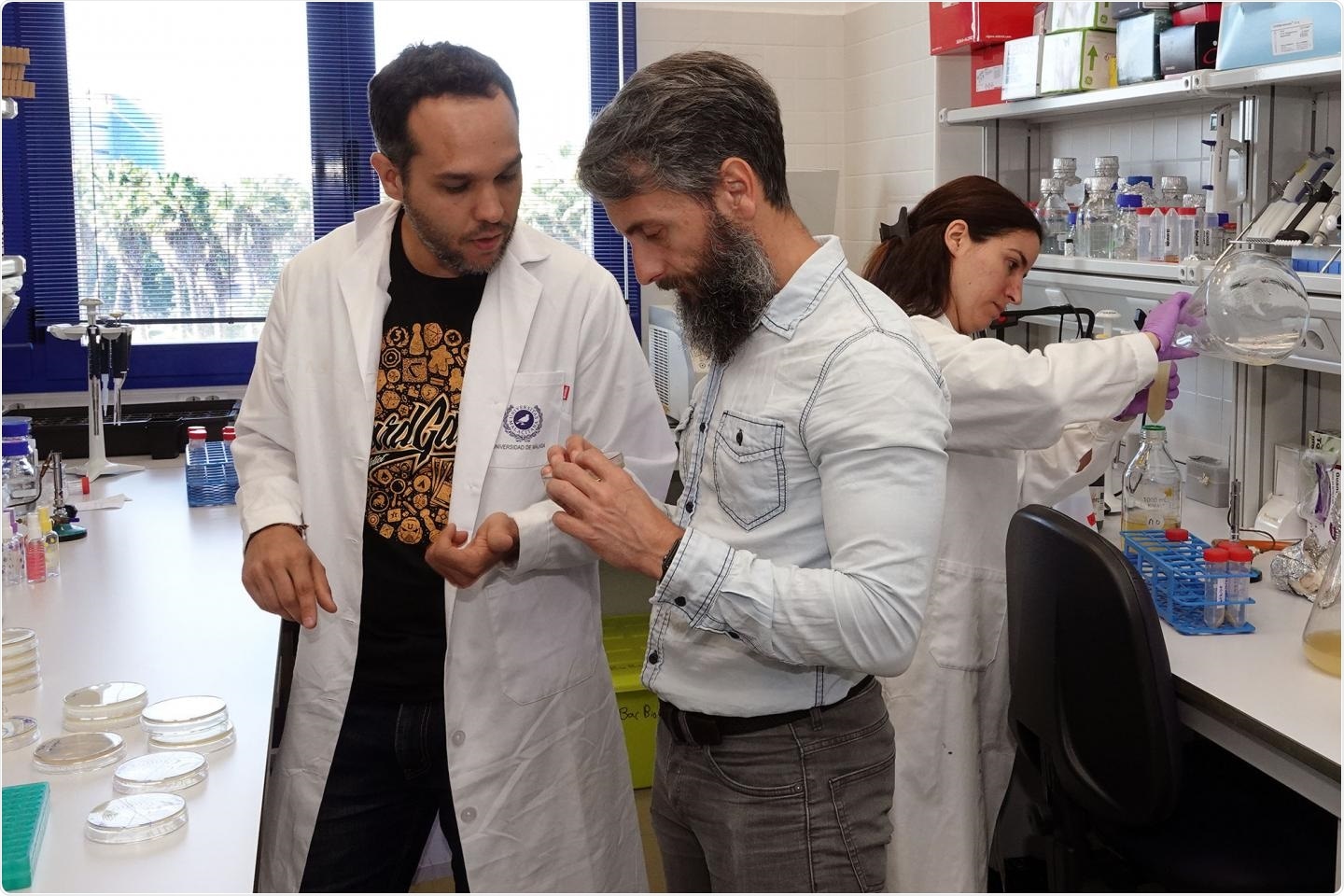When Bacillus subtilis cells are deprived of an amyloid protein (TasA), they show a range of cytological dysfunctions and anomalies that cause their premature death. This has been proved in the laboratory of the University of Malaga, “BacBio.”

New functions of a protein may improve biocontrol methods in sustainable agriculture. Image Credit: University of Malaga.
This finding provides a better understanding of the role of these proteins, broadly distributed in the microbial realm, and helps enhance the biological control techniques in sustainable agriculture. The study was recently published in the scientific journal Nature Communications.
The research team from the University of Malaga has specifically evidenced how this amyloid protein TasA, needed for the assembly of the bacterial communities called “biofilms,” not only prevents bacterial cell death but also preserves the integrity of the cell membranes.
That is: we observed a complementary role in these proteins in addition to their merely structural role.”
Diego Romero, Study Main Author and Researcher, University of Malaga
Diego Romero is also a member of the Institute for the Mediterranean and Subtropical Horticulture “La Mayora” (IHSM), a joint research institute of the Spanish National Research Council (CSIC) and the University of Malaga.
According to Romero, this dual functionality is mirrored in plant surfaces to bacterial attachment, in which the protein contributes to fight pathogen attack and enhance bacterial fitness.
“We aim to boost its use in sustainable models of crop production and protection,” stated the Professor of the Department of Microbiology at the University of Malaga.
Hence, this research has worked on the bacterium Bacillus subtilis, emphasizing on two features—the study of its molecular bases that result in the formation of bacterial communities referred to as “biofilms,” and how these biofilms play a role in the favorable activity of Bacillus as biocontrol agents in sustainable agriculture models.
The amyloids: dual functionality
Amyloids are proteins mainly known for their association with degenerative diseases in human beings. As a matter of fact, “amyloidosis”, an illness caused by the accumulation of amyloids in tissues or organs, is named after them.
But as observed in this research, amyloid proteins (TasA among them) are known as functional amyloids because they are capable of adopting a wide range of purposes in nature.
The fact that these proteins are widely distributed in the microbial world entails the possibility that they might play a role in other bacterial species stabilizing cell integrity, or at least a different and complementary role to that initially observed in each of these systems.”
Diego Romero, Study Main Author and Researcher, University of Malaga
According to the expert, the significance of these outcomes is twofold. From the agro-biotechnology standpoint, it permits scientists to gain a better knowledge of the behavior of beneficial bacteria, and thus enhance and reinforce its use in sustainable production and protection programs.
However, from the microbiology standpoint, where there is a large distribution of amyloid proteins, a novel target has been identified to be targeted if they wish to impair the pathogenic microorganisms.
Source:
Journal reference:
Camara-Almirón, J., et al. (2020) Dual functionality of the amyloid protein TasA in Bacillus physiology and fitness on the phylloplane. Nature Communications. doi.org/10.1038/s41467-020-15758-z.